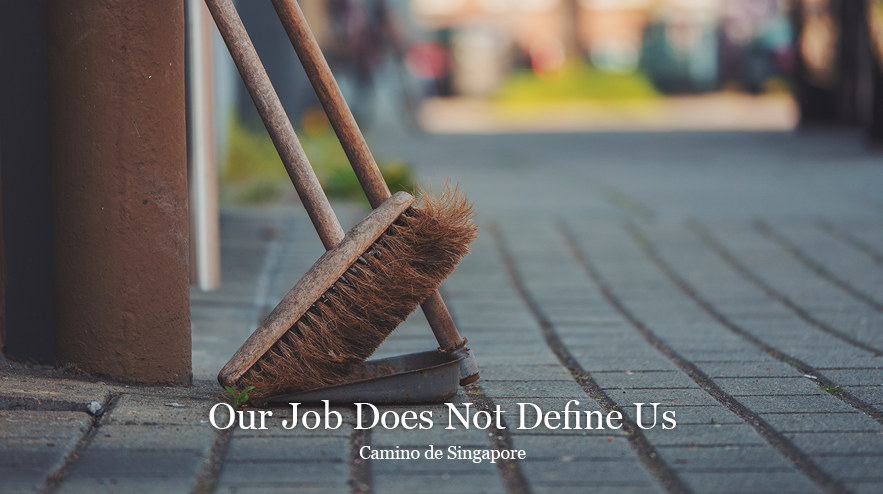No products in the cart.
Many years back, when my second girl was born, I quit my job to look after my two very young children. The months following that decision saw myself trying to redefine who I was without a job.
Whenever friends, or anyone for that matter, asked during meet-ups what I was working as, it always became an awkward moment for me to find an answer I was comfortable with. The feeling of not having a job, the sense that staying home as a homemaker made me less valuable than when I was working at the office. Seeing savings decrease each month made me emotionally insecure and mentally anxious as well.
It was not until I learned more about the social teachings of the church on the dignity of work that I came to better understand the meaning, value and importance of work, any kind of work. Work is not just a job. All work that contributes to the common good of the society is holy and meaningful. In doing our work well, be it finance, administration, care-giving, construction, etc., we put our faith in action to help build a better society for all.
Since all good work has dignity, the type of work we are occupied with should not be a value-label on us as persons. All persons should be respected in the work that they do.
Goh Jing Rong’s reflection on his experience as a part-time cleaner brings out a timely reminder that we need to rethink how we look at those holding what the society considers as low-value jobs. He aptly remarks, “I have always believed that people should not be defined by their qualifications or occupation … Yet there are still professions in our society that are being judged and ostracised, such as floor cleaners.”
Of course, it is important that one’s work allows one to meet the needs of the family. Recently, there has been much debate about wages. It is good to know that the government has set up a new group to consider how to address issues of salaries and working conditions of low-wage workers. As a society with high standard of living, we have a collective responsibility to constantly review, improve and update structures and policies to care for those struggling to make ends meet. They should not be left behind in our pursuit for excellence.
Finally, let us not forget that work can build meaningful relationships. Even in the midst of insecurity and work challenges, Bangladeshi workers Billal Khan and Zasim reached out to fellow migrant workers and cared for them. Their leadership and sincere gestures of kindness helped build friendships among fellow migrant workers.
Now, as we approach the last month of the year 2020 and look towards 2021, let us ask ourselves how we define “work”. Are we judging our fellow brothers and sisters by their job title? How does our work help us to develop as children of God?
Related News
- Gen Y Speaks: What I learned as a cleaner for a week is more relevant now than ever (Today, 1 Nov 2020)
- Stepping up in a crisis: How migrant workers took on leadership roles during Covid-19 (The Straits Times, 26 Oct 2020)
- Government launches work group to look into wages, welfare of low-wage workers (Channel NewsAsia, 29 Oct 2020)
Gail Ng is part of the Special Projects team at Caritas Singapore. The study of earth processes has been one of her pet interests since young and she suspects that that is why she loves the colour green.

